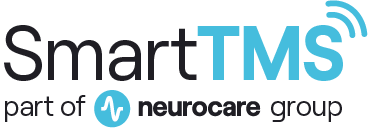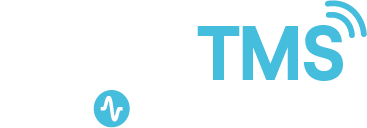Transcranial Magnetic Stimulation (TMS) and Geriatric Depression: A Non-Pharmacological Approach to Treatment
February 6, 2025 - Smart TMS

Understanding Geriatric Depression
Depression in older adults, or geriatric depression, is a significant public health concern. It is often underdiagnosed and undertreated due to overlapping symptoms with ageing, medical comorbidities, and cognitive decline. Traditional treatments, such as antidepressant medications and psychotherapy, may not be as effective in older populations due to increased side effects, medication interactions, and treatment resistance (Lenze & Oughli, 2019). Studies indicate that 30-50% of elderly patients with depression exhibit treatment resistance to first-line antidepressants (Bottino et al., 2012; Kennedy & Jacobbe, 2007; Knochell et al., 2015). As a result, researchers have turned to non-pharmacological interventions like transcranial magnetic stimulation (TMS) as a promising alternative for managing major depressive disorder (MDD) in the elderly.
medical comorbidities, and cognitive decline. Traditional treatments, such as antidepressant medications and psychotherapy, may not be as effective in older populations due to increased side effects, medication interactions, and treatment resistance (Lenze & Oughli, 2019). Studies indicate that 30-50% of elderly patients with depression exhibit treatment resistance to first-line antidepressants (Bottino et al., 2012; Kennedy & Jacobbe, 2007; Knochell et al., 2015). As a result, researchers have turned to non-pharmacological interventions like transcranial magnetic stimulation (TMS) as a promising alternative for managing major depressive disorder (MDD) in the elderly.
What is TMS?
TMS is a non-invasive brain stimulation technique that uses electromagnetic pulses to modulate neural activity in specific brain regions associated with mood regulation, particularly the dorsolateral prefrontal cortex (DLPFC). Repetitive TMS (rTMS) has been approved for treatment-resistant depression (TRD) and has shown positive outcomes in both younger and older adults. Meta-analyses suggest that 40-60% of patients with TRD achieve a clinically significant response with rTMS, with 30-40% achieving full remission (Lefaucheur et al., 2020). Our smart clinics have shown similar results, with a 70% response rate.
Why TMS for Older Adults?
Several studies have demonstrated the efficacy and safety of TMS for depression in older adults. A meta-analysis by Cappon et al. (2023) found that rTMS significantly reduces depressive symptoms in patients over 60, with minimal side effects. One clinical trial reported a response rate of 47.6% and a remission rate of 35.7% among elderly patients receiving rTMS, compared to 19.0% and 4.8% in a sham treatment group (Manes et al., 2001). Unlike medications, which can lead to cognitive impairment, sedation, or cardiovascular risks, TMS offers a well-tolerated alternative with no systemic side effects. Additionally, TMS does not interfere with medications commonly prescribed for older adults, making it a feasible option for individuals with multiple chronic conditions.
The Role of Theta-Burst Stimulation (TBS)
Recent developments in TMS technology have introduced Theta-Burst Stimulation (TBS), a more efficient form of TMS with shorter treatment durations. TBS consists of:
- Intermittent TBS (iTBS): Excitatory stimulation applied to the left DLPFC.
- Continuous TBS (cTBS): Inhibitory stimulation applied to the right DLPFC.
A randomised controlled trial (RCT) protocol published by Valiengo et al. (2022) outlines a study on bilateral TBS for geriatric depression, with sessions totalling 3,600 pulses over 23 treatments. The researchers expect TBS to be statistically superior to sham treatment, as measured by the Hamilton Depression Rating Scale (HDRS), Geriatric Depression Scale (GDS), and Montgomery–Åsberg Depression Rating Scale (MADRS) (Valiengo et al., 2022). TBS has been shown to yield response rates similar to standard rTMS reducing session duration by approximately 80% (Li et al., 2014).
Biomarker Insights: Can TMS Predict Treatment Response?
One of the exciting aspects of TMS research is its potential to identify biological predictors of treatment response. Researchers are investigating whether Brain-Derived Neurotrophic Factor (BDNF) levels can serve as biomarkers for TMS efficacy. Some studies suggest that increased BDNF post-TMS treatment correlates with better antidepressant effects, offering hope for a more personalised approach to treating depression in older adults. In one study, patients who responded to rTMS demonstrated a 25% increase in serum BDNF levels post-treatment compared to non-responders (Sen et al., 2008; Zelada et al., 2023). Findings indicate that lower baseline BDNF levels may increase with pharmacological treatment, correlating with symptom improvement, however, results remain inconsistent, particularly for non-pharmacological therapies highlighting the need for further research to standardise methodologies and explore personalised treatment approaches (Zelada et al., 2023).
Cognitive Effects of TMS in Older Adults
One concern regarding TMS is its impact on cognitive function, particularly in older populations at risk for dementia. However, evidence suggests that TMS may actually improve cognitive performance rather than impair it. A study on executive function and working memory in older adults undergoing TMS found no significant cognitive decline post-treatment. In some cases, participants even showed slight improvements in cognitive flexibility and processing speed (Zandvakili et al., 2019). Furthermore, a systematic review found that 61% of studies reported cognitive improvements, particularly in attention and processing speed, following rTMS treatment in older adults with depression (Kumar et al., 2021).
Strengths
- No systemic side effects like those seen with medications.
- Particularly beneficial for older adults who have not responded to traditional antidepressants.
- Some studies suggest improved executive function and memory.
- Flexible treatment protocols: Shorter-duration protocols like TBS make treatment more accessible.
- High response rates: TMS response rates in geriatric populations range between 40-60%, with remission rates around 30-40%.
Limitations
- TMS requires specialised equipment and trained professionals, making it less accessible in rural or underserved areas.
- Variability in response rates: While many benefit from TMS, some patients do not respond, and biomarkers for predicting success are still under investigation.
- Some individuals may require booster sessions to sustain improvements over time.
- TMS treatments can be expensive, and insurance coverage varies by provider and location.
As research on TMS and its variants like TBS continues, it is becoming clear that brain stimulation offers a promising path forward for geriatric depression. With minimal side effects, growing evidence of efficacy, and potential cognitive benefits, TMS is emerging as a viable alternative or adjunct to traditional treatments. Future studies focusing on biomarkers, personalised treatment protocols, and long-term outcomes will further solidify its role in geriatric mental health care.
If you or a loved one is struggling with depression and standard treatments have not been effective, TMS could be a game-changing option worth exploring. Always consult a healthcare professional to determine the best treatment plan for your individual needs.
Written by Weronika, Smart TMS Edinburgh Practitioner
References
- Bottino, C. M. C., Carvalho, I. A. M., Alvarez, A. M. A., Avila, R., & Zukauskas, P. R. (2012). Cognitive impairment in depression among older adults. International Psychogeriatrics, 24(9), 1474–1480. https://doi.org/10.1017/S1041610212000775
- Cappon, D., Jahanshahi, M., Bisiacchi, P., & Pompili, M. (2023). Repetitive transcranial magnetic stimulation for treatment-resistant depression in older adults: A systematic review and meta-analysis. The Journal of Clinical Psychiatry, 84(2), e15392. https://doi.org/10.4088/JCP.22r14592
- Kennedy, G. J., & Jacobbe, G. (2007). Depression and resilience in late life: The role of medical comorbidity and depression history. The American Journal of Geriatric Psychiatry, 15(5), 438–443. https://doi.org/10.1097/01.JGP.0000249397.42095.64
- Knochel, C., Oertel-Knochel, V., O’Dwyer, L., Prvulovic, D., Alves, G., Kollmann, B., & Hampel, H. (2015). Cognitive and behavioural effects of rTMS in depression: Current state and future perspectives. European Archives of Psychiatry and Clinical Neuroscience, 265(2), 89–100. https://doi.org/10.1007/s00406-014-0537-3
- Kumar, S., Singh, A., & Verma, R. (2021). Cognitive effects of repetitive transcranial magnetic stimulation in geriatric depression: A systematic review. Aging & Mental Health, 25(6), 1060–1070. https://doi.org/10.1080/13607863.2020.1721408
- Lefaucheur, J. P., Aleman, A., Baeken, C., Benninger, D. H., Brunelin, J., Di Lazzaro, V., Filipović, S. R., Grefkes, C., Hasan, A., Langguth, B., Londero, A., Nardone, R., Nguyen, J. P., Nyffeler, T.,
- Oliveira-Maia, A. J., Paus, T., Poulet, E., Quartarone, A., Rösler, T. W., … & Ziemann, U. (2020).
- Evidence-based guidelines on the therapeutic use of repetitive transcranial magnetic stimulation (rTMS). Clinical Neurophysiology, 131(2), 474–528. https://doi.org/10.1016/j.clinph.2019.11.002
- Lenze, E. J., & Oughli, H. A. (2019). Pharmacologic and nonpharmacologic treatments for geriatric depression. The American Journal of Psychiatry, 176(8), 609–620. https://doi.org/10.1176/appi.ajp.2019.18101295
- Li, C. T., Chen, M. H., Juan, C. H., Huang, H. H., Chen, L. F., Hsieh, J. C., Tu, P. C., Bai, Y. M., & Su, T. P. (2014). Efficacy of intermittent theta burst stimulation targeting the left dorsolateral prefrontal cortex in treating medication-resistant depression: A randomized sham-controlled trial. Brain Stimulation, 7(2), 213–219. https://doi.org/10.1016/j.brs.2013.10.006
- Manes, F., Jorge, R., Morcuende, M., Yamada, T., Paradiso, S., & Robinson, R. G. (2001). A controlled study of repetitive transcranial magnetic stimulation as a treatment of depression in the elderly. International Psychogeriatrics, 13(2), 225–231. https://doi.org/10.1017/S1041610201007565
- Sen, S., Duman, R., & Sanacora, G. (2008). Serum brain-derived neurotrophic factor, depression, and response to antidepressant treatment: A meta-analysis. International Journal of Neuropsychopharmacology, 11(8), 1169–1184. https://doi.org/10.1017/S1461145708009309
- Valiengo, L., Borrione, L., & Brunoni, A. R. (2022). Theta burst stimulation for geriatric depression: A randomized controlled trial protocol. Trials, 23(1), 654. https://doi.org/10.1186/s13063-022-06627-4
- Zandvakili, A., Blumberger, D. M., Daskalakis, Z. J., & Fitzgerald, P. B. (2019). Cognitive effects of repetitive transcranial magnetic stimulation in treatment-resistant depression: A systematic review. Neuropsychopharmacology, 44(1), 224–239. https://doi.org/10.1038/s41386-018-0129-6
- Zelada, M. A., Huang, S. S., Derry, J. M., & Carter, C. S. (2023). The role of BDNF and genetic polymorphisms in predicting antidepressant response: A systematic review. Molecular Psychiatry, 28(4), 213–229. https://doi.org/10.1038/s41380-022-01992-0






